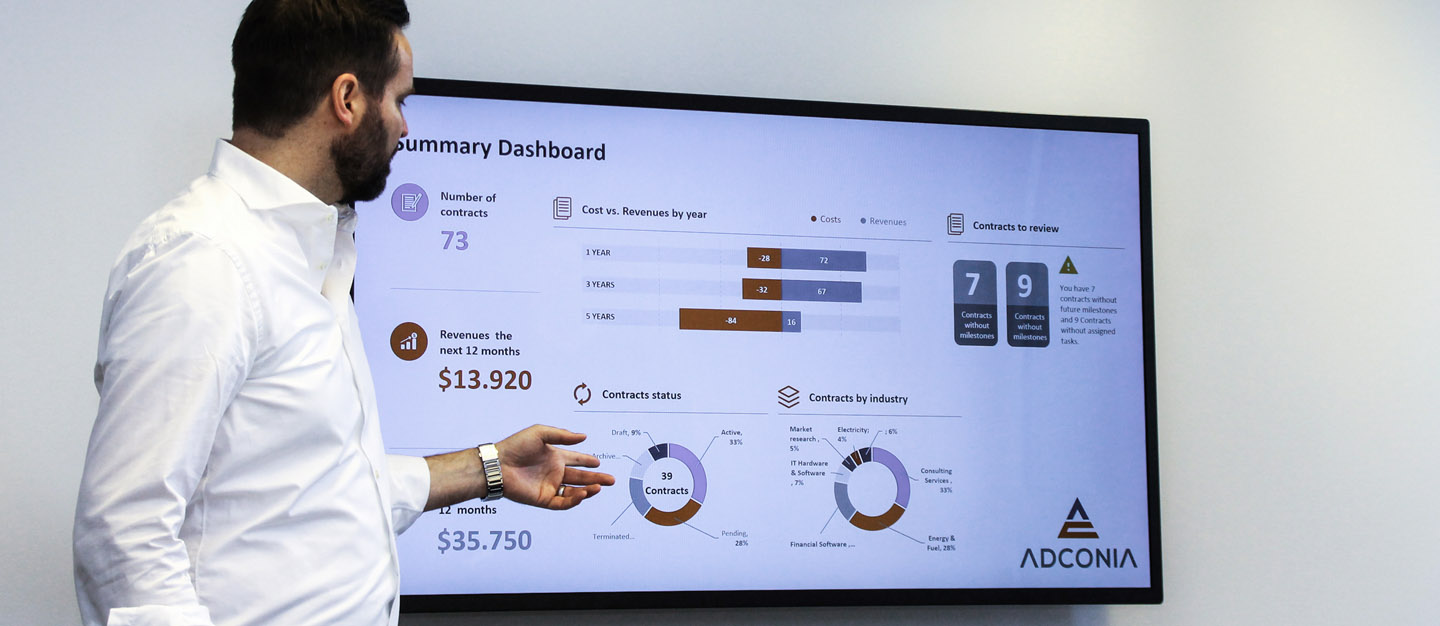Digital Value Navigator – Guide to digitalization
It is obvious how Corona is fundamentally changing our business life and that of most of our customers. The current situation is forcing companies to go down paths that some have been skeptical about in the past.
Conversely, it is mainly the companies that are pioneers in the field of digitalization that are coping comparatively well with the crisis. Due to the COVID 19 crisis, the stringent digitalization of business processes is now showing its advantages in order to keep processes stable even in difficult environments and to be able to carry out communication (internal and external) in a stable manner.
Need for action in medium-sized businesses
According to a study conducted by the KfW in 2019, only one third of medium-sized companies have already successfully completed digitalization projects in the last three years. The study shows that larger companies not only invest more frequently in digital projects, but also invest more financially. In our experience, however, smaller companies in particular could benefit greatly from changes in the Industry 4.0 sector.
Many processes, especially in medium-sized companies, still run manually or in analog form. In the first step, „digitalization“ means converting analog data and processes into digital formats. In doing so, paper documents, for example, can be replaced by online forms or digital documents. Even simple steps or agreements with business partners (e.g. reformatting of provided documents and evaluations) can therefore regularly reduce considerable effort, start digitalization and make every day work much more efficient.
The path to digitalization can and should therefore begin on a small scale. The solutions do not necessarily have to involve the use of so-called artificial intelligence, block chains or robotic process automation.
Small solutions already help significantly – the long-term plan leads to the goal
Rather, a systematic and comprehensive plan for industry- and company-specific digitalization is the right and goal-oriented path. The crux of the matter is often not the will to change, but the lack of a concept to implement digitalization successively or to continue after the first changes.
Small companies shy away from this unfamiliar terrain and only dare to approach digital business concepts tentatively and with low investments. Managers cite lack of time and money as a clear reason.
Because the automation and digitalization of inefficient processes still too often, in the absence of a structured overall concept, does not bring the desired added value for the organization. Due to a lack of experience, it only becomes apparent after the introduction of the system whether the investment in modern technology is actually worthwhile or whether it has merely led to an expensive toy without any resounding benefits.
The challenges of implementation lie, on the one hand, in the market knowledge of the meanwhile broad and fissured range of digital tools – and not least also of the most varied price models – and, on the other hand, ultimately in the evaluation of the benefit or individual value of the respective solutions.
Expert knowledge helps
Even with similar business models, no two companies are alike. Differences in size, structure, customer and supplier base make specific solutions necessary.
Numerous questions have to be answered systematically and resiliently in advance, such as
- What is the current level of maturity in procurement and supply chain processes, with particular focus on digitalization?
- Which processes are actually valuable with regard to possible automation?
- Which of the solutions available on the market are suitable for which processes?
- How should a solution be dimensioned? A fast, comprehensive package solution for the entire company or perhaps more specialized tools that are implemented step by step?
- Up to what degree of specialization and to what extent is an upcoming investment in digitalization economical or how can the benefits of the solutions be evaluated in monetary terms and then measured in the long term?
- Is there a comprehensive market overview and outlook on potential market partners, products and price models?
The first step is therefore always a stock-taking of the company’s business processes and the degree of automation and digitization. With the development and market launch of the Digital Value Navigator (DVN), ADCONIA offers a procedure & tool for the evaluation of the individual company added value of process digitalization. The Digital Value Navigator is able to evaluate the solution providers operating in the market independently and above all from the point of view of the company concerned, based on objectively formed analysis criteria. It combines the following focal points
- Stocktaking
- Optimization potential
- Implementation measures
- Economic analysis of necessary investment decisions.
Due to our extensive market experience based on a large number of completed, cross-industry projects, the use of the Digital Value Navigator allows us to create a digitalization roadmap for the company in question in a short time. The result is an overview tailored to your goals and requirements, a detailed plan of measures and implementation. Results-oriented, efficient and lean.
The DVN helps to quickly, objectively and cost-effectively map the appropriate path to digitalization for your company and – last but not least – to identify the ideal solution partner(s) on the market. It prevents implemented processes and purchased tools from turning out to be expensive gimmicks in the end.
Gregor van Ackeren
Managing Director, ADCONIA GmbH
Tim Rohweder
Partner, ADCONIA GmbH



